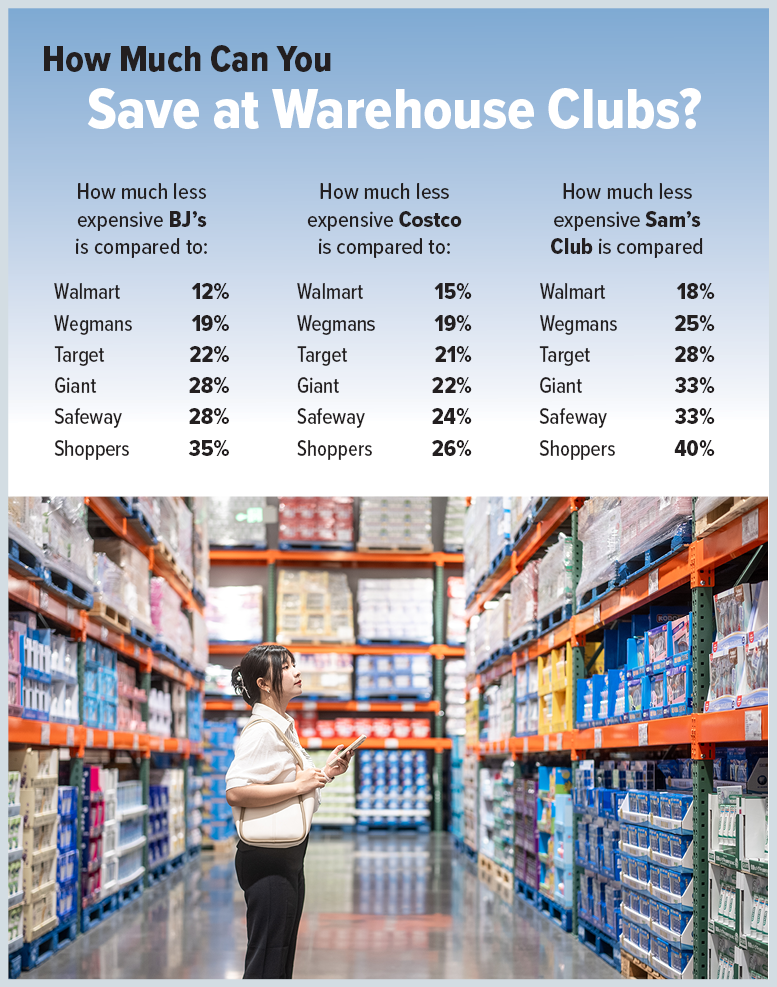How Much Will You Save on Groceries by Joining a Warehouse Club?
Last updated November 2025
For some food shopping, warehouse clubs offer low-cost alternatives to supermarkets. Using our market basket of 150 grocery items, we surveyed prices for BJ’s, Costco, and Sam’s Club and compared them to Walmart, Target, and traditional supermarkets.
The warehouse clubs carried few if any of the 150 items in our market basket in the usual sizes. But when we looked for the same brands regardless of size, warehouse stores—which specialize in bulk sales—stocked a larger portion of our market basket items. BJ’s had 71 percent, Sam’s Club 58 percent, and Costco 51 percent.
The figure below indicates how much warehouse stores could save you. Since the warehouse stores stocked so few items in the sizes of our basic market basket, we looked for items of any size from the same brands. We then used unit prices (for example, price per pound) to calculate the warehouse stores’ prices for amounts specified in the market basket. Then we compared the prices of items at the warehouse stores with prices for the same brands at several other stores. This is not an apples-to-apples comparison—the sizes of the items priced at the warehouse stores were usually larger than the sizes of the items priced at the other stores—so the warehouse stores enjoy an advantage in such a comparison.
The three warehouse chains all offer most shoppers significant savings. Sam’s Club, for example, beat Safeway’s prices by 33 percent. And compared to Safeway, the savings were about 31 percent at Costco and 28 percent at BJ’s.
In addition to having low prices, Costco received very high customer ratings for the quality of its meat and above-average scores for produce quality and overall quality. (BJ’s and Sam’s Club’s ratings were considerably lower than Costco’s.)
While the warehouse clubs offered significant savings compared to prices offered at grocery stores, that might not justify paying their annual membership fees if you don’t visit often. For example, BJ’s prices were only about 12 percent lower than Walmart’s; you’d have to spend $500 at BJ’s on products you could buy at Walmart before breaking even on BJ’s $60 annual fee.
And if half of what you buy is wasted due to spoilage, you won’t save by buying in bulk.



